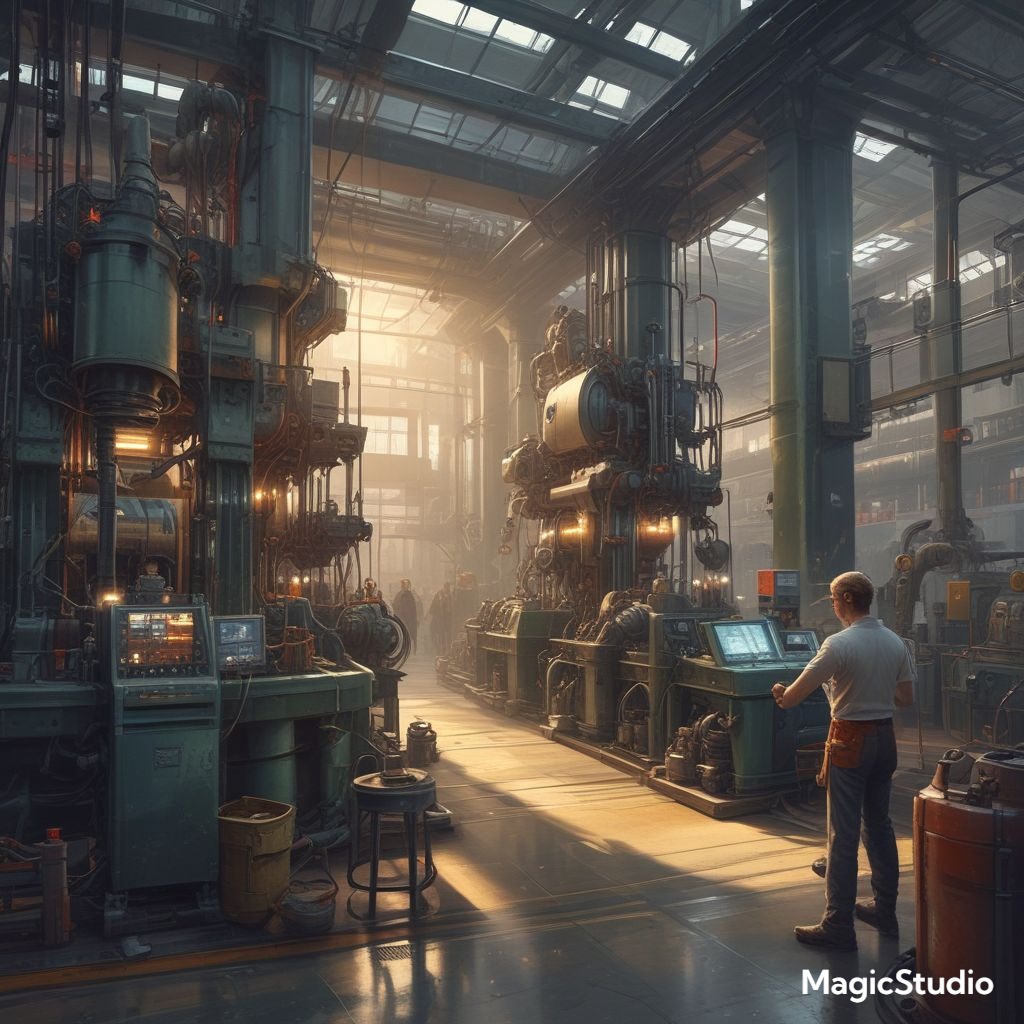
Introduction
The industrial world is rapidly evolving with the rise of smart factories, a concept that integrates cutting-edge technologies like IoT (Internet of Things), AI (Artificial Intelligence), and Big Data into manufacturing processes. Smart factories, also known as Industry 4.0, aim to create highly flexible, efficient, and sustainable production systems, driving the future of industrial machinery and manufacturing.
As industries strive for greater efficiency, productivity, and sustainability, smart factories are becoming the gold standard in manufacturing, offering a more automated and intelligent way of producing goods.
What is a Smart Factory?
A smart factory is a digitally connected production facility that utilizes advanced technologies to monitor, analyze, and improve manufacturing processes. These factories rely on IoT devices to collect real-time data from machinery, AI for predictive analytics, and machine learning to automate decision-making processes.
Some of the key features of a smart factory include:
Benefits of Smart Factories
1. Enhanced ProductivitySmart factories streamline production processes by leveraging automation and data analytics. Machines communicate with each other and adjust operations in real-time to ensure optimal performance. This results in increased production output, reduced downtime, and faster time-to-market.
By using AI and machine learning to monitor production lines, smart factories can detect defects early in the process and make adjustments instantly. This improves product quality and reduces waste by minimizing rework and errors.
With predictive maintenance and efficient use of resources, smart factories help companies cut costs. Sensors on machinery detect potential issues before they lead to breakdowns, allowing for timely maintenance and reducing expensive repairs.
Smart factories are designed to be energy-efficient, utilizing renewable energy sources and intelligent systems to manage energy consumption. The use of sustainable materials and optimized production processes reduces waste and lowers the overall environmental impact.
Challenges in Implementing Smart Factories
1. High Initial InvestmentOne of the major challenges in adopting smart factory technology is the significant capital required for the infrastructure and technology upgrades needed. Companies must invest in IoT devices, AI systems, and data analytics platforms.
As smart factories rely heavily on interconnected systems and data sharing, they are vulnerable to cyber-attacks. The risk of data breaches or system disruptions can have serious consequences for production processes and intellectual property.
Implementing and maintaining a smart factory requires a workforce with expertise in data analytics, AI, and IoT technologies. Companies may face challenges in finding skilled professionals to manage these advanced systems.
Real-World Examples of Smart Factories
Siemens’ Amberg Plant: Siemens operates a fully automated factory in Amberg, Germany, where more than 75% of the production process is automated. The factory has been a leader in Industry 4.0, with machines that self-monitor and adjust production processes.
Bosch Rexroth: Bosch’s Rexroth plant is another example of a smart factory, utilizing real-time data analytics and IoT-enabled devices to optimize production and energy consumption. This facility has seen significant gains in productivity and sustainability.
The Future of Smart Factories
As technologies like 5G, AI, and advanced robotics continue to evolve, smart factories will become even more intelligent and capable. The integration of these technologies will further improve production efficiency, reduce waste, and enhance sustainability efforts. In the future, we may see fully autonomous factories that require minimal human intervention, changing the landscape of industrial manufacturing.
Conclusion
The shift toward smart factories is transforming the industrial and machinery sectors, offering unparalleled efficiency, cost savings, and sustainability. Although there are challenges to overcome, the long-term benefits of smart factories make them a critical component of the future of manufacturing. As companies continue to adopt and refine these technologies, the industrial world will witness a new era of production excellence.